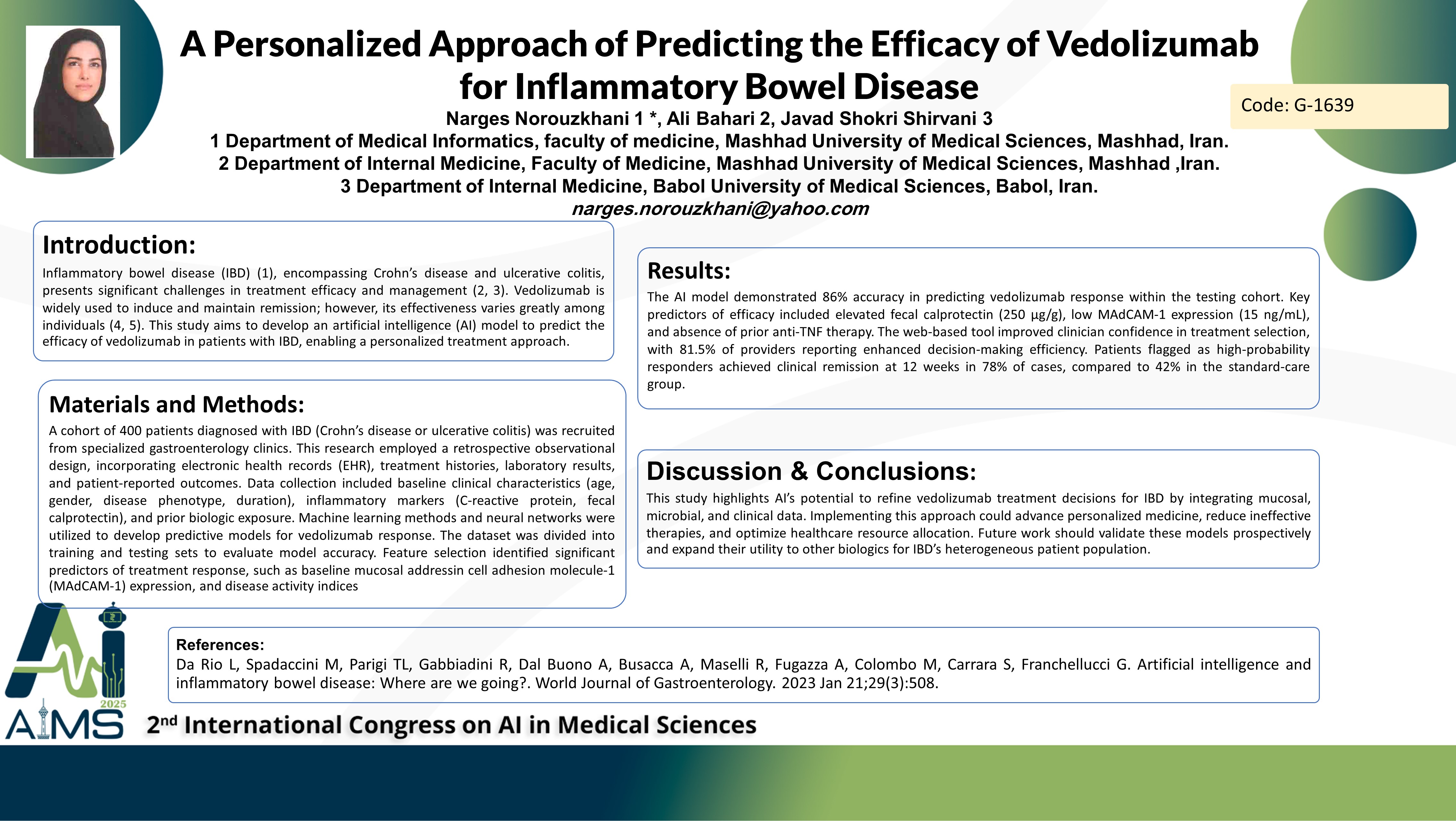A Personalized Approach of Predicting the Efficacy of Vedolizumab for Inflammatory Bowel Disease
Code: G-1639
Authors: Narges Norouzkhani * ℗, Ali Bahari, Javad Shokri Shirvani
Schedule: Not Scheduled!
Tag: Biomedical Signal Processing
Download: Download Poster
Abstract:
Abstract
Background: Inflammatory bowel disease (IBD) (1), encompassing Crohn’s disease and ulcerative colitis, presents significant challenges in treatment efficacy and management (2, 3). Vedolizumab is widely used to induce and maintain remission; however, its effectiveness varies greatly among individuals (4, 5). This study aims to develop an artificial intelligence (AI) model to predict the efficacy of vedolizumab in patients with IBD, enabling a personalized treatment approach. Materials and Methods: A cohort of 400 patients diagnosed with IBD (Crohn’s disease or ulcerative colitis) was recruited from specialized gastroenterology clinics. This research employed a retrospective observational design, incorporating electronic health records (EHR), treatment histories, laboratory results, and patient-reported outcomes. Data collection included baseline clinical characteristics (age, gender, disease phenotype, duration), inflammatory markers (C-reactive protein, fecal calprotectin), and prior biologic exposure. Machine learning methods and neural networks were utilized to develop predictive models for vedolizumab response. The dataset was divided into training and testing sets to evaluate model accuracy. Feature selection identified significant predictors of treatment response, such as baseline mucosal addressin cell adhesion molecule-1 (MAdCAM-1) expression, and disease activity indices. Model performance was assessed using accuracy, sensitivity, specificity, and area under the receiver operating characteristic (ROC) curve. A web-based decision support tool was developed to translate predictions into actionable insights for clinicians. Findings: The AI model demonstrated 86% accuracy in predicting vedolizumab response within the testing cohort. Key predictors of efficacy included elevated fecal calprotectin (250 µg/g), low MAdCAM-1 expression (15 ng/mL), and absence of prior anti-TNF therapy. The web-based tool improved clinician confidence in treatment selection, with 81.5% of providers reporting enhanced decision-making efficiency. Patients flagged as high-probability responders achieved clinical remission at 12 weeks in 78% of cases, compared to 42% in the standard-care group. Conclusion: This study highlights AI’s potential to refine vedolizumab treatment decisions for IBD by integrating mucosal, microbial, and clinical data. Implementing this approach could advance personalized medicine, reduce ineffective therapies, and optimize healthcare resource allocation. Future work should validate these models prospectively and expand their utility to other biologics for IBD’s heterogeneous patient population.
Keywords
Vedolizumab, Machine Learning, Precision Medicine
